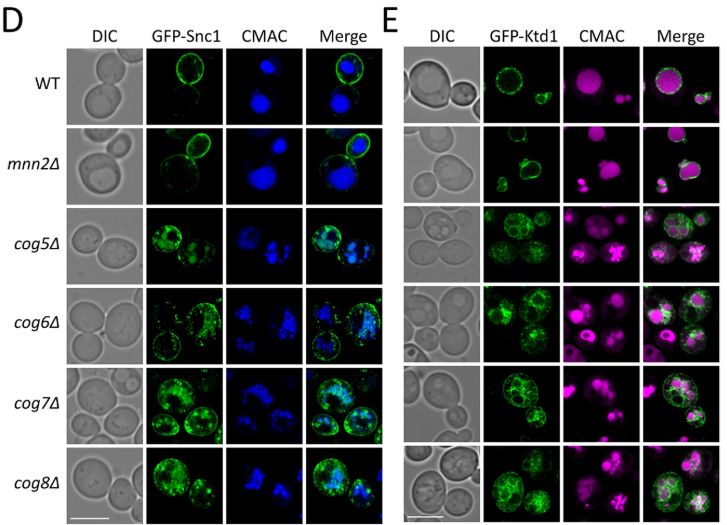Just imagining research talks in antiquity.
EUCLID: …thus, there does not exist a rational number whose square is equal to 2.
HIPPOCRATES: [grumbling] I fail to see the clinical relevance of any of this
26.09.2025 13:01 — 👍 3 🔁 0 💬 0 📌 0
Final version of our paper out now on how high-throughput methods can be useful for answering everyday “low-throughput” genetic questions!
11.09.2025 03:08 — 👍 6 🔁 1 💬 0 📌 0
The 90s was more my radio era than albums, but I’d say each of these are perfect in their own way: RATM, Midnite Vultures, Rangeela, Blackout! (Would have also said 2001, but the skits are terrible.)
06.09.2025 04:05 — 👍 1 🔁 0 💬 0 📌 0
Now out officially, with the entire kit on @addgene.bsky.social. Great collaboration with @merusadhu.bsky.social, with more to come.
20.08.2025 12:51 — 👍 2 🔁 1 💬 0 📌 1
What did you think of Gyokeres? Didn’t seem very threatening. Could just need more time to bed in.
18.08.2025 03:01 — 👍 0 🔁 0 💬 0 📌 0

Microscopy images showing that correct localisation of either Ktd1 or Snc1 requires the COG complex.
Kamilla Laidlaw, Hatwan Nadir, Chris MacDonald @yorkyeast.bsky.social and team @biologyatyork.bsky.social discover that killer toxin K28 resistance in yeast relies on COG complex-mediated trafficking of Ktd1.
journals.biologists.com/jcs/article/...
Article: journals.biologists.com/jcs/article/...
21.07.2025 12:25 — 👍 11 🔁 5 💬 1 📌 1
I’m really rooting for this approach to catch on! Of the papers I’ve been involved in, this is probably the one I most feel is contributing a different way of thinking. Big shoutout to the co-first authors, Molly Monge (now an MD/PhD student at Cornell) and Simone Giovanetti.
14.07.2025 15:18 — 👍 3 🔁 0 💬 0 📌 0
“High throughput” doesn’t have to mean hard/expensive! At its heart, the difference is that instead of picking a few clones of your transformation, you take all the colonies. And with low sequencing costs and the possibility of pooling sequencing, it will generally be affordable.
14.07.2025 15:18 — 👍 1 🔁 0 💬 1 📌 0
Second, background mutations. Often in low-throughput approaches, each strain is generated once and split into replicate cultures for experiments. It makes the experiment a lot easier, but any background mutations are shared between replicates! Again, bulk methods can help!
14.07.2025 15:18 — 👍 1 🔁 0 💬 1 📌 0
First, replicates. It’s hard to do low-throughput experiments on even a modest number of samples with more than a small number of replicates per sample. Not a problem if you make your replicates in bulk using barcodes and test your hypothesis in high throughput!
14.07.2025 15:18 — 👍 1 🔁 0 💬 1 📌 0
Validate User
New paper from my lab! We describe our idea that high-throughput pooled experimental methods – typically used to test thousands of hypotheses at once – also have huge potential to help in “everyday” experiments testing one or a few focused hypotheses. Why? Two reasons: doi.org/10.1093/g3jo...
14.07.2025 15:18 — 👍 16 🔁 5 💬 1 📌 0
Assistant Professor UTSW; Mutagenesis, Population genetics, Evolution in somatic tissues and on phylogenetic tree
Lecturer & group leader in Lund University. Computational microbiologist, mostly working on toxin-antitoxin systems, ribosomes and bacterial defence against phages. Director of the LU-Fold protein structure prediction infrastructure of LU.
Atkinson-lab.com
Assistant prof at OSU|epigenomics of cellular reawakening in yeast & neural stem cells|views mine!|she/her
Diversity, Equity, & Inclusion are values essential to an ethical and modern society|Black lives matter|Trans rights are human rights
The Saccharomyces Genome Database (SGD) provides comprehensive biological information for the budding yeast Saccharomyces cerevisiae along with search and analysis tools to explore these data, enabling scientific discovery.
Evolutionary systems/cell biologist. EMBO and SNSF Postdoctoral Fellow with Dmitri Petrov and Dan Jarosz at Stanford. PhD with Andreas Wagner at the University of Zurich. Studying how molecular and cellular systems shape, and are shaped by, evolution.
Postdoc @Cambridge University and the Wellcome Sanger Institute. Pathogens evolution: Horizontal Gene Transfer🧬, Phages, Mutational hotspots, AMR, virulence 🇲🇽
Doudna Lab at UC Berkeley, Innovative Genomics Institute founder, CRISPR co-inventor and Nobel laureate innovativegenomics.org/
Assistant Prof at UPenn & Children’s Hospital of Philadelphia
Co-Director of Center for Microbial Medicine (https://tinyurl.com/2xve6jfp) at CHOP
We study host-pathogen interactions, C. diff, Enterococcus, gut microbiota, mRNA vaccines.
zackularlab.org
Scientist fascinated by infectious diseases, host-microbe interactions and bacterial infections. Views my own 🇵🇷 #CienciaBoricua #MacFellow #MRSA
NIH Postdoc | Microbiome | Microbial Genomics
Assistant Professor of all things fungi, from their nifty viruses to their inevitable demise 🍄 @NSfungiLab @HUJIAgri
Assistant Professor at Binghamton University
Microbiologist, bacterial-host interactions, Streptococcus
Microbiology Graduate Student at WashU
Schwartz Lab - https://djschwartzlab.wustl.edu/
Opinions are my own
she/her
News from Jennifer Doudna's lab at UC Berkeley, Innovative Genomics Institute. Tweets from lab members and not Jennifer Doudna unless signed JD. Tweets represent personal views only.
doudnalab.org
Systems Biology PhD Student @Harvard, Labs of Michael Desai @mmdesai.bsky.social & Michael Baym @baym.lol | Trinity College Cambridge Alum | Evolution & Microbes
Husband, father, scientist , coach…opinions are my own
